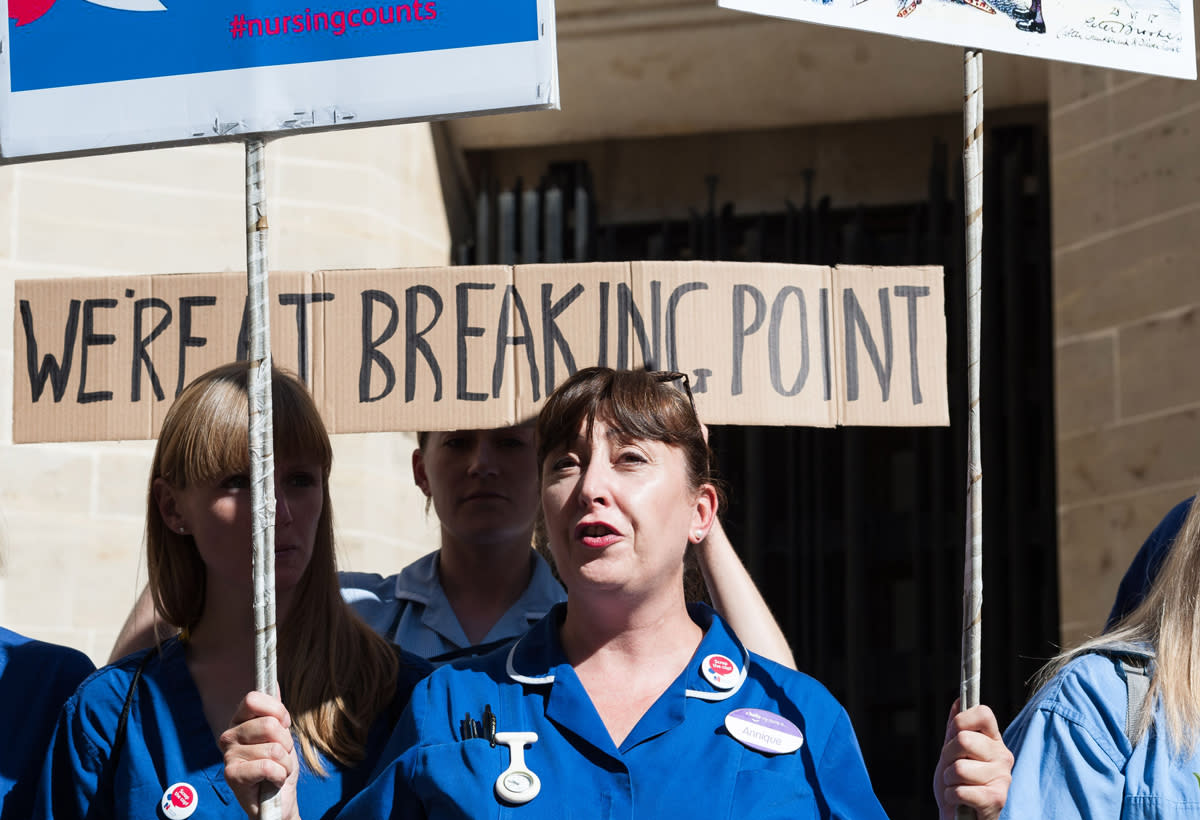Almost all NHS trusts have too few nurses to guarantee patient safety, new figures reveal

Patients will pay “the very highest price” if the government fails to recruit more nurses, the Royal College of Nursing (RCN) has said after analysis revealed staff shortages at nearly all of England’s largest hospital trusts.
The body accused the government of “nursing on the cheap” after the data revealed that nurses are increasingly replaced by unqualified healthcare assistants, which has been proved to put patient safety at risk.
Nine in 10 of the trusts, which oversee 150 hospital sites, are not meeting their own safe staffing targets, according to the analysis.
The figures show that more than half the largest hospitals (55 per cent) brought more unregistered support staff onto shifts to deal with staff shortages during the day.
At night, two thirds (67 per cent) of hospitals use unregistered support staff.
Janet Davies, chief executive and general secretary of the RCN, said the figures show patients are at risk in the largest hospitals.
“Patients can pay the very highest price when the Government encourages ‘nursing on the cheap’,” she said. “Nurses have degrees and expert training and, to be blunt, the evidence shows patients stand a better chance of survival and recovery when there are more of them on the ward.”
Last year, a study in the journal BMJ Quality & Safety found that he use of unqualified healthcare assistants in hospitals endangers the lives of patients.
The cost-cutting practice is associated with a rise of more than a fifth in the odds of dying in a hospital, according to the Europe-wide study.
“In light of these figures, the government must redouble its efforts to train and recruit more qualified nurses and stop haemorrhaging the experienced ones who are fed up, undervalued and burning out fast,” Davies said.
“Despite the number of EU nurses working in the NHS, ministers are still failing to reassure them of their right to remain.
“They must feel welcome to live and work here — the NHS would go under if they drifted away. All nursing staff, regardless of where they trained, should go to work confident that there will be enough trained nurses to give safe care and feel valued with fair pay for their work.”
MOST POPULAR STORIES ON YAHOO UK:
Cancer charity founder gave herself £31,000 in ‘significant breach of trust’
Big Ben to be silenced for four years from next week
Passengers flee as London bus catches fire in the middle of Camden
Drunken air passenger arrests have increased by 50% at UK airports
The Department of Health said: “Just this month we announced an extra 10,000 places for nurses, midwives and allied health professionals by 2020, and there are over 12,500 more nurses on our wards since 2010.”
According to the RCN there are 40,000 nurse vacancies, caused by Brexit, the public sector pay cap and low morale.
Earlier in the year, figures revealed that more midwives and nurses are leaving the profession in the UK than joining for the first time on record.
The number of staff departing rose by 51 per cent in just four years, according to the Nursing and Midwifery Council.
It found that, despite concerns over the drop in EU registrants after the Brexit vote, it is the departure of UK nurses who account for the largest number of departures.
In 2016/17, 29,434 UK nurses and midwives left the register, up from 19,818 in 2012/13, and 45 per cent more UK registrants left than joined last year.

 Yahoo News
Yahoo News 

